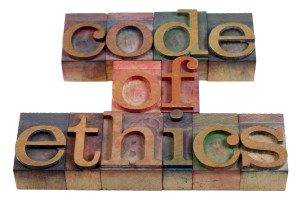 The Business Daily News defines Ethical leadership as leadership that is directed by respect for ethical beliefs and values, and for the dignity and rights of others. The importance of being an ethical leader cannot be overstated. Having integrity (and leading ethically) is a top leadership quality that is highly regarded by all demographics.
The Business Daily News defines Ethical leadership as leadership that is directed by respect for ethical beliefs and values, and for the dignity and rights of others. The importance of being an ethical leader cannot be overstated. Having integrity (and leading ethically) is a top leadership quality that is highly regarded by all demographics.
Most people would agree that each person’s ethical foundation is formed early on from parents, guardians and social upbringing. Given this, and assuming we have this ethical foundation to begin with, the issue seems more likely to be how leaders fare when tested. And tested most leaders will be at some point in their career.
Ethical leaders are measured by the values they lead by, and how they treat people.Do they treat people equitably and with dignity? Do they show compassion?And are they true to their word (integrity)? The interesting thing about ethical behavior is that the characteristics defined above can be easily observed. People will know fairly quickly whether you lead ethically or not.
I had the pleasure of speaking to a leader I admire, David Alexander, about this topic on the Sound Leadership Circle recently and we shared a few best practices that can support leaders to stay the course. I recommend leaders identify their own personal values and write them down to refer to when the need arises. It is also helpful for leaders to have role models or mentors they can rely on for guidance and when faced with an ethical test. “What would my mentor do?” is always a good approach. Another suggestion is to know your own biases and be on guard for them rearing their head. Finally, it is a good idea to hire people with similar values. This helps solidify culture and reinforce company values.
A few things to consider if you are screening new hires for similar personal and company values:
- Can they speak to the values that they live by, and give examples of how they do this?
- Can they share behavioral examples of how they keep their word?
- Are they known for praising or blaming others? Do they give credit to team members?
- Do they speak only to “I” or do they also have a “We” vocabulary?
- In the interview, consider giving them an ethical scenario to resolve and see how they handle it.
- Conduct references around integrity – ask their references to give you an example of why they trust this candidate or how the candidate demonstrates integrity, and lastly,
- Start with referrals from your most trusted, high integrity employees – it is always a good place to begin.
If you want to build an ethical framework upon which to develop your leadership practice and wish to discuss how to go about it, reach out to me at the email address below or watch the Soundleadership Circle with David Alexander, where we discuss ethical leadership.








